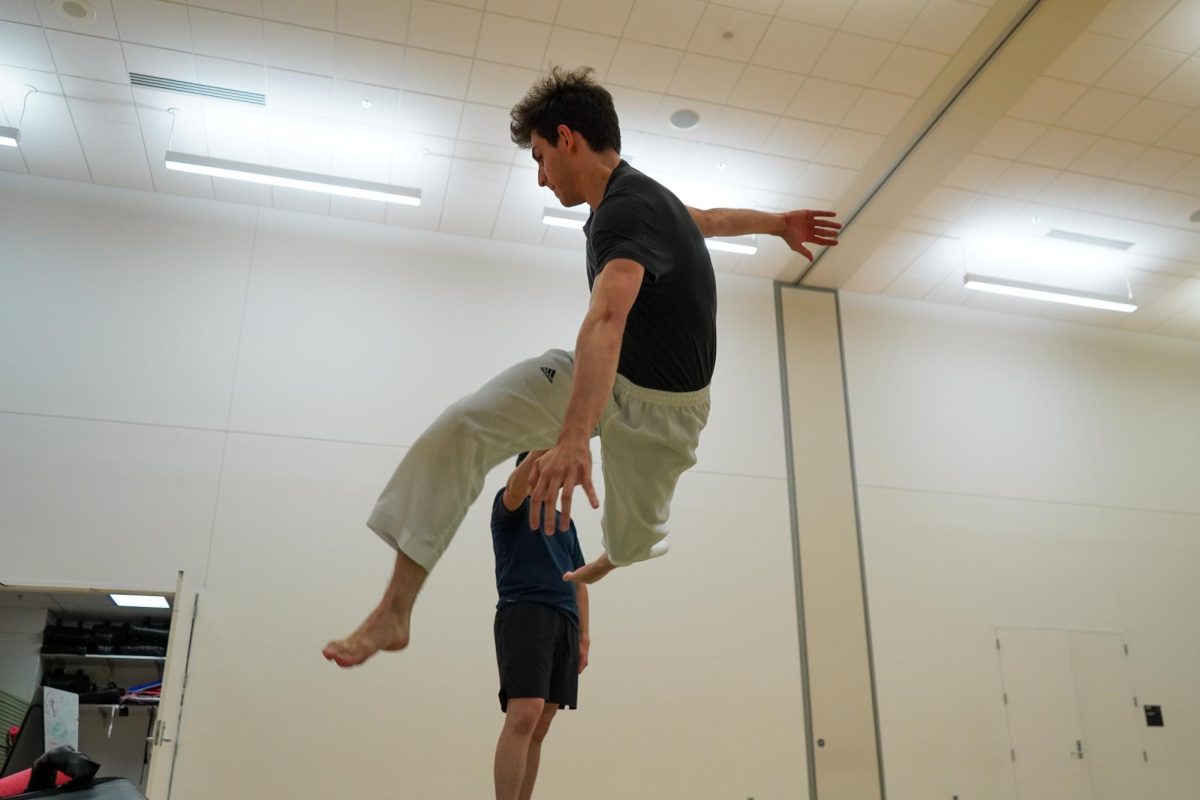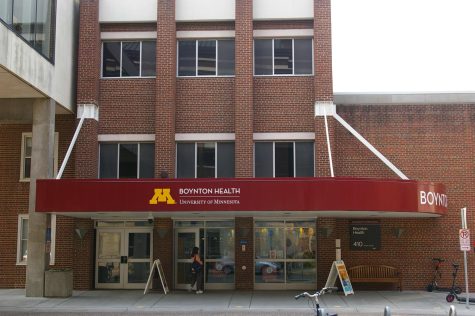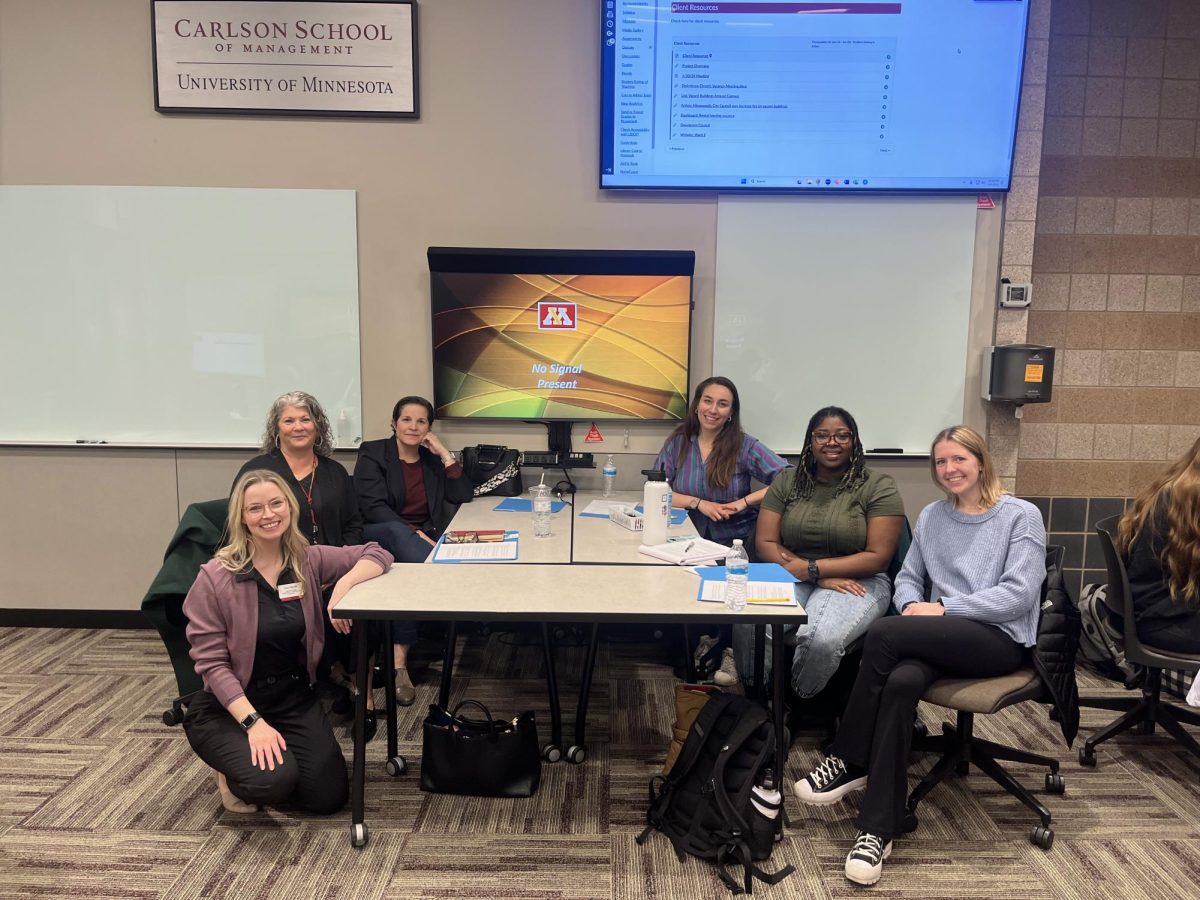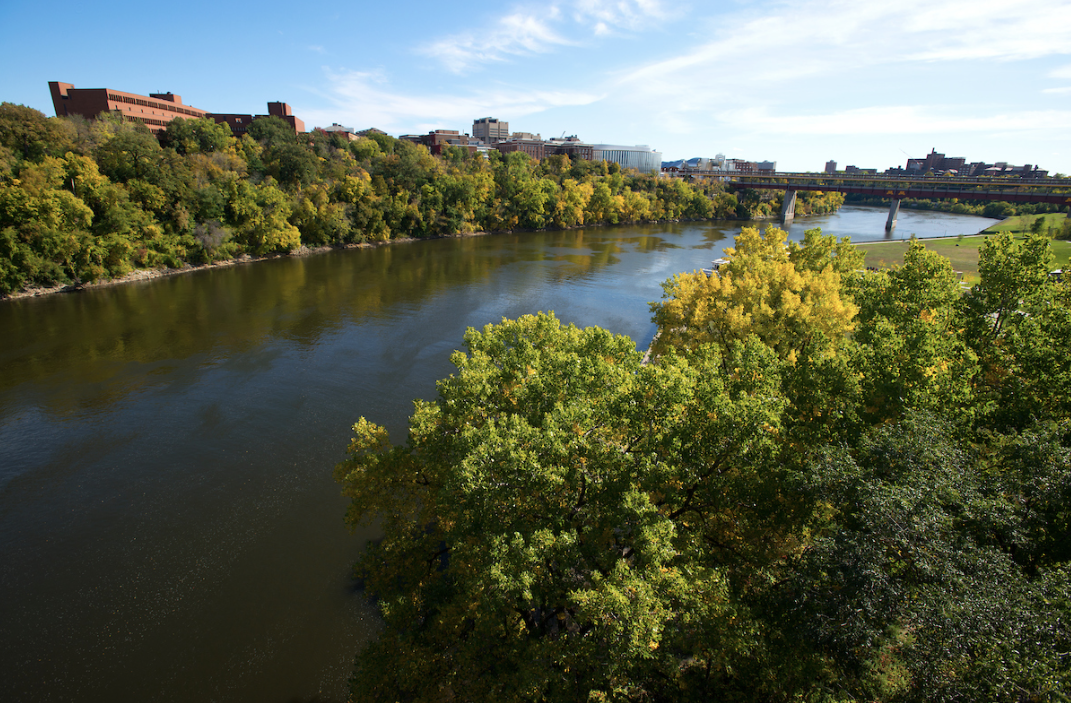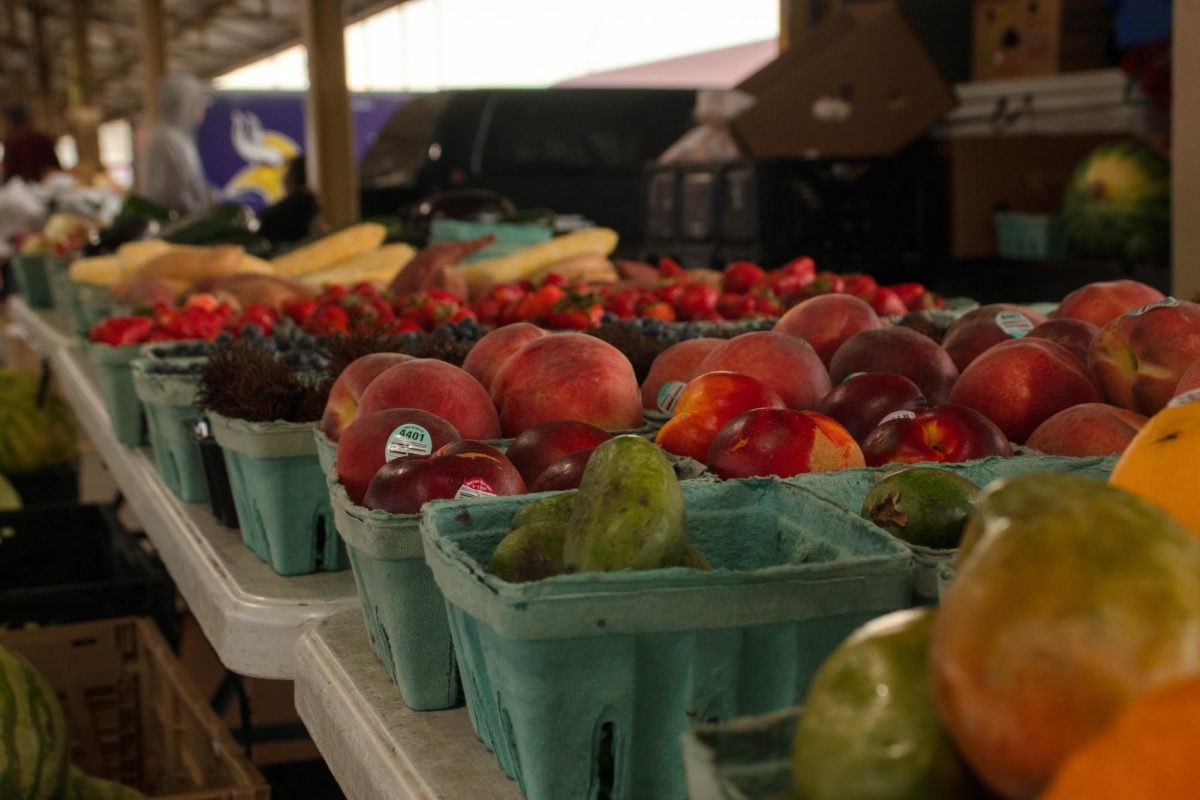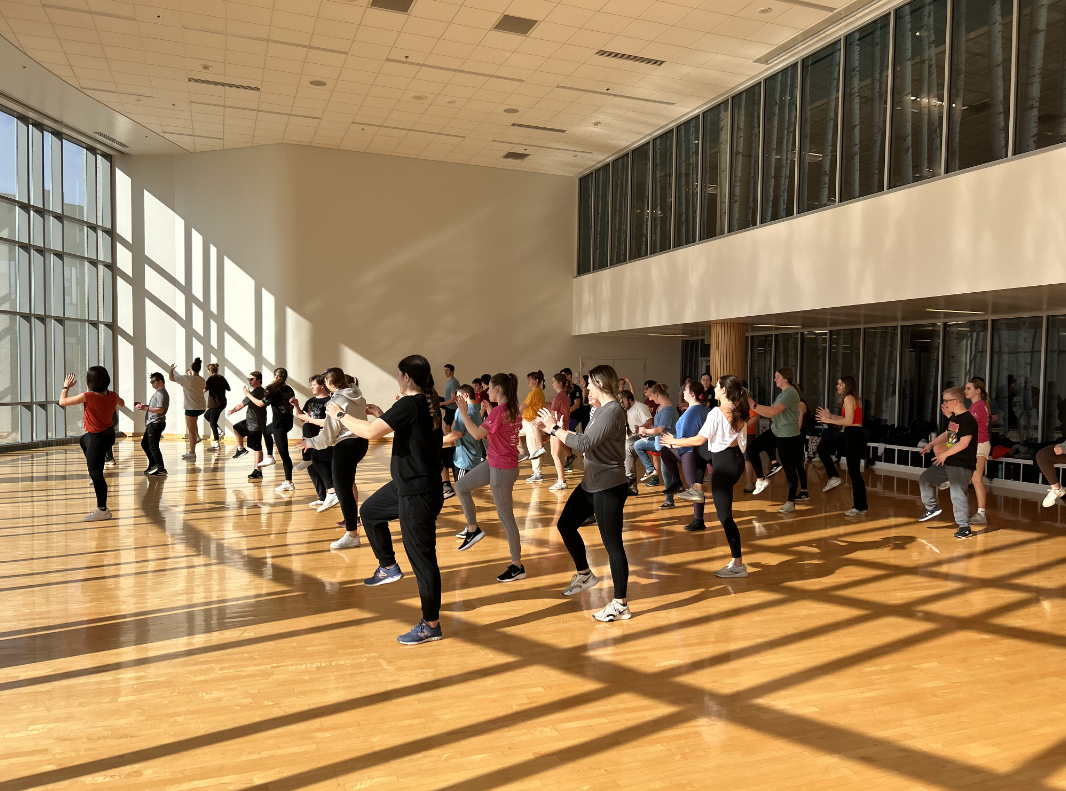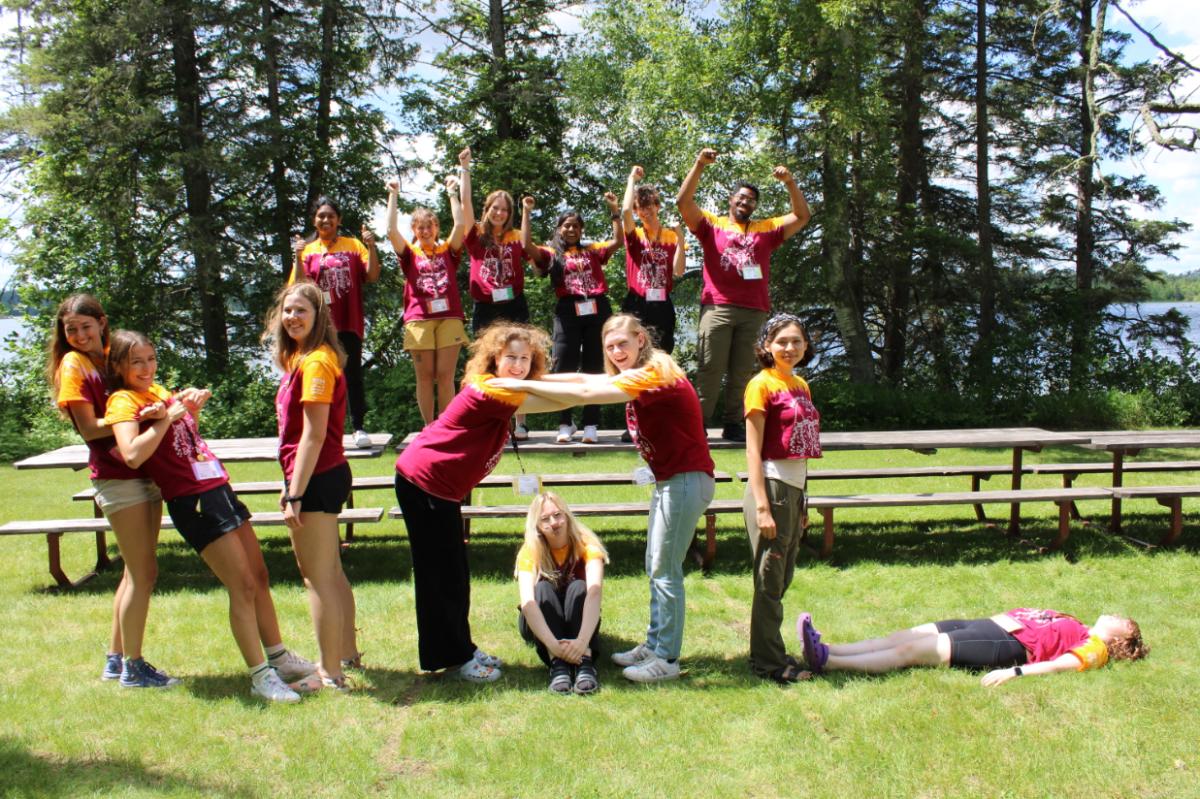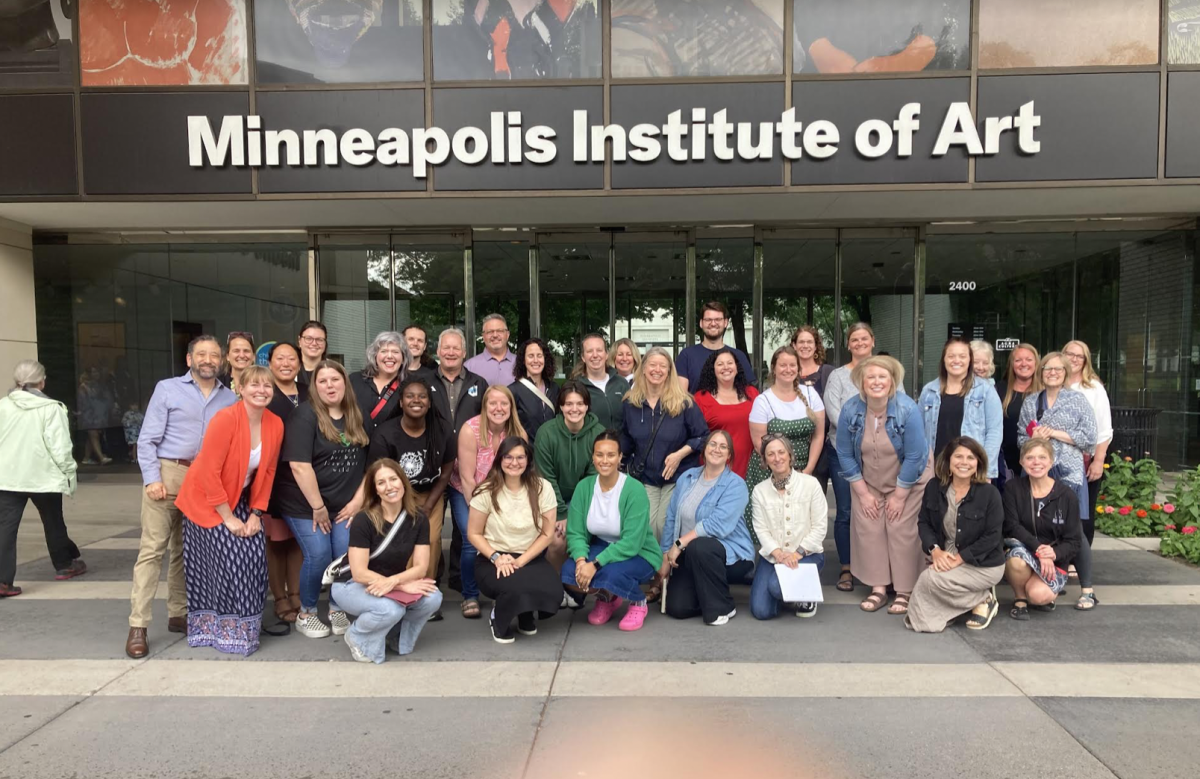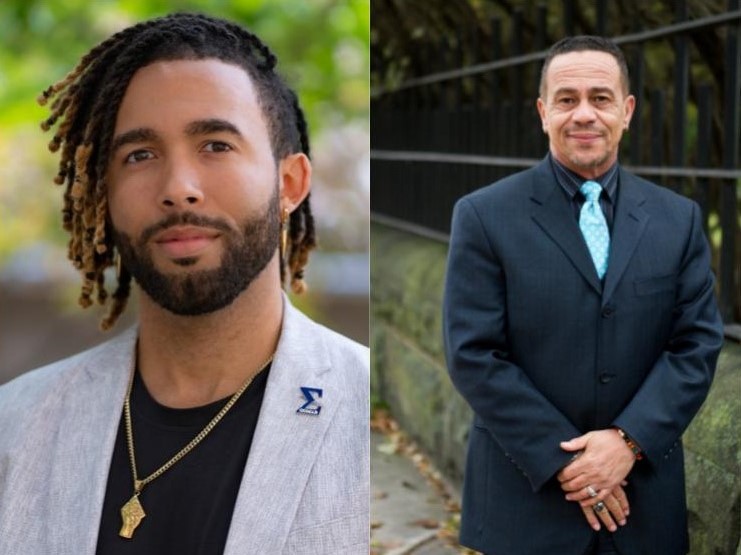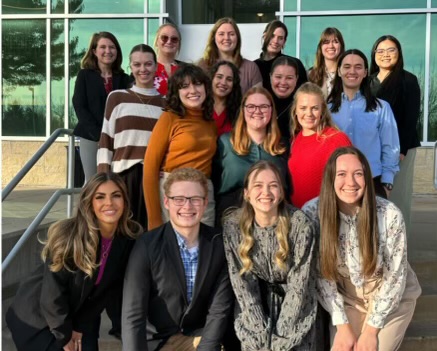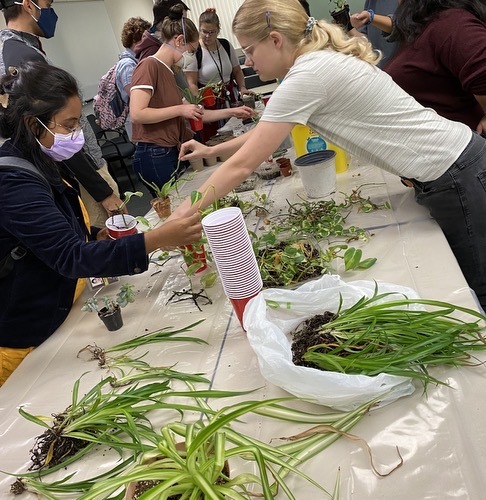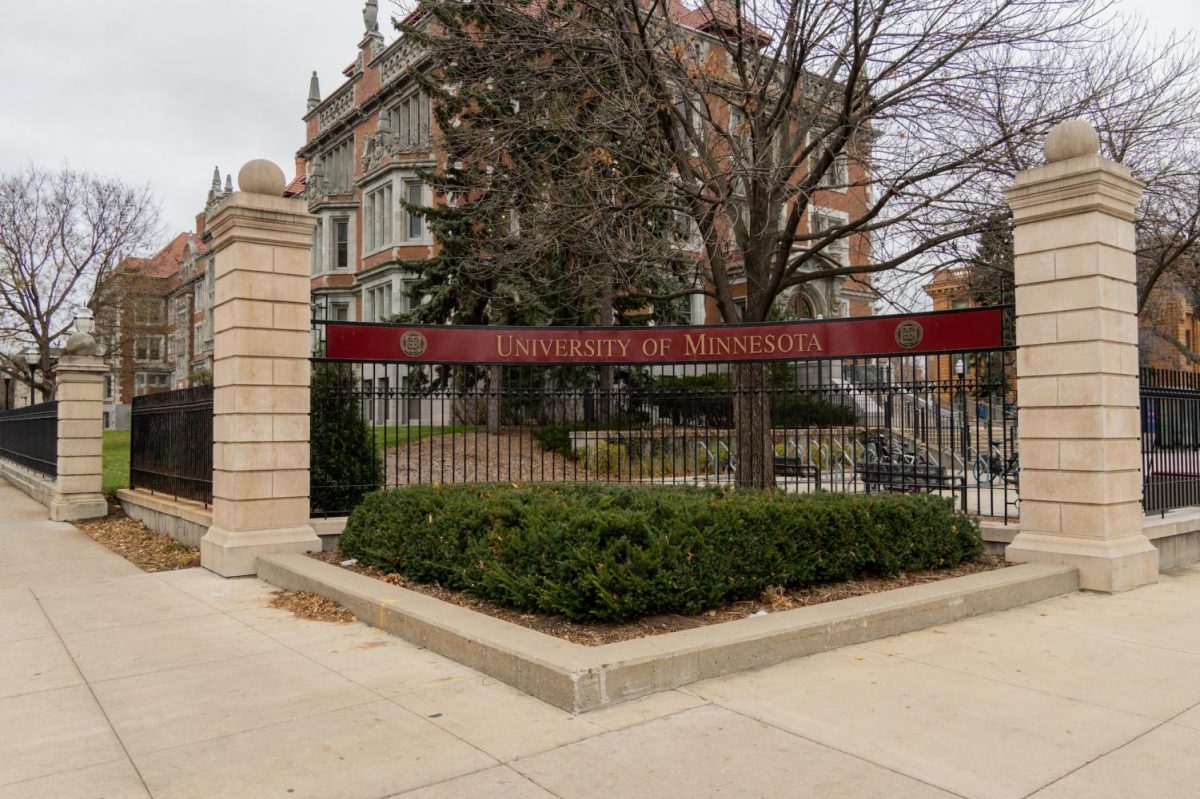The Minnesota Daily has seven editorial desks, each working on different types of stories. Here is what you need to know about them.
Each desk at the Daily has a different role, contributing different types of stories to create what the Minnesota Daily is. The desks include campus activities, campus administration, city, sports, opinions, arts and entertainment, and podcast.
Campus Activities
The campus activities desk covers events and activities happening on campus. This includes student groups, student issues or anything involving campus and student life.
“Anything that pertains to students, we write about,” said Amirah Razman, a campus activities reporter and third-year University of Minnesota student.
Razman said being on campus activities has allowed her to make more of a connection with campus and learn about what makes it so special apart from the academics.
Activities covers the Undergraduate Student Government (USG), student groups and even health-related topics like the pandemic and public safety incidents on campus.
“We’re trying our very best to cover all of campus life and all of the student body and faculty too,” Razman said. “We’re just trying really hard to get their voices heard.”
Razman started as an intern on the other campus desk, campus administration, during the summer of 2022. She switched to the activities desk in the fall and has been there ever since.
“I definitely learned a lot about how a newsroom operates,” Razman said, adding she has learned what to expect when it comes to brainstorming, pitching and interviewing in a newsroom.
Not only is Razman a reporter, but she also runs the Content Diversity Board (CDB) at the Daily.
“I make sure the stories that are going to be put out before publication are free of any biases or are being addressed accurately when it comes to sensitive topics, or if it comes to mentions of race, gender or sexuality,” Razman said.
By working to make sure all people are being represented accurately in stories, Razman said she hopes the CDB can become a learning experience for everyone.
Campus Administration
While the campus activities desk focuses on student life, the campus administration desk focuses on everything administration-related at the University.
Campus administration beats include faculty and research and development, which focuses on any research projects coming out of the University. It also covers the Board of Regents, or anyone in higher-up administration –– including the President, deans of schools and the Board of Regents members –– as well as meetings along with any policy changes at the University.
Alex Lassiter is a third-year student who has been working at the Daily on the campus administration desk since the summer.
Lassiter said while it can be frustrating dealing with people who do not respond to interview requests, he enjoys working on the desk.
“There’s always going to be someone who is smarter than you,” Lassiter explained. “The benefit of being a reporter is you get to learn those things from those people who actually know them.”
Lassiter understands some people have trouble trusting the press because of how reporters are portrayed in other forms of media, but he wants people to know he and other Daily reporters are trying to do their jobs.
“I just want to make sure that everybody knows what’s going on around campus because not everybody does,” Lassiter said.
City
Unlike the campus desks, city desk has more latitude in what they cover, which includes topics like public policy, bills and things that might not happen on campus but affect people at the University.
“We have the ability to tell stories about our University community, but we’re not limited to the University campus,” explained Devlin Epding, fourth-year student and the city desk editor.
Epding said one of his favorite things about working on the desk and for the Daily is getting to talk to activists, business owners, politicians and random people on the street, who he said are more fascinating than he could have ever imagined.
Epding also emphasized that the Daily is a learning institution.
“A mistake isn’t the end of the world,” he said. “We’re here to get better.”
Working on city desk comes with a responsibility to establish and build good, positive relationships between the Daily and the communities the desk covers, according to Epding. The desk tends to go into communities that are not familiar with having the media report on them.
“If people are generous enough to tell their stories to us, then we have the responsibility to take care of that story for them,” Epding said.
Having been an editor since May, Epding realizes how quickly personal growth happens while working at the Daily.
“Your growth personally happens so quickly and before you realize you’ve made any progress, you’re helping the next class of people,” Epding said.
Sports
Sports desk includes stories written about the student-athlete experience at the University, as well as the analysis of the athlete’s performance and the camaraderie surrounding the teams.
Theo Franz has been the sports desk’s editor since May and a reporter on the desk for a year before that.
Franz said it is important to document the student-athlete experience because, in the ever-changing landscape of sports, it is important for people now and in the future to know what the University has gone through.
“The hardest part about sports desk is finding an available time to talk to student-athletes, as well as the athletic code which they have to abide by in talking to media members,” Franz said.
Franz knows each athlete has a unique story and it is the job of sports desk to find and share them.
“We’re cooperative and driven,” Franz said. “We’re creative and we like people to experience sports in other ways than watching the game over television. As a student-run newspaper, we’re in the perfect place to do that.”
Opinions
Opinions desk is another editorial desk producing columns and stories involving the expression of opinion.
“A big misconception about the opinions desk is it’s strictly about opinions of the columnists,” said Spencer White, third-year student and editor of the desk. “The idea behind an opinions section is creating discourse.”
This year, White and the desk are working to integrate differences in opinions and readers’ voices through polls and debates. An individual opinion piece does not have the most discourse within it but can instead spark discourse, according to White.
“Even someone in the comments being like, ‘You’re stupid and wrong,’ is better than no conversation whatsoever, in my opinion,” said White.
Amidst the creation of discourse in opinion pieces, the desk still upholds journalistic standards, even though they are different from the hard-news pieces of the other desks.
Arts and Entertainment
Anything that can be consumed as art or be defined as entertainment or culture is found within the arts and entertainment (A&E) desk.
Film, music, theater, art galleries and food reviews can be written by A&E reporters, focusing on the Twin Cities area, not just campus, according to Cole Bursch, the A&E editor.
“One of the biggest challenges is figuring out how to write for arts and entertainment,” Bursch said. “It’s much different from hard news, and there’s a lot more flexibility in terms of what you can write about and how you can write it.”
While A&E writing can be compared to opinions more than hard news articles, Bursch said they do not always use their own opinion, but there is more leeway and creativity involved.
“It’s just fun,” Bursch said. “We get to do fun things. I’ve talked to some of my favorite bands and I get to write about things that I’ve never known about.”
Bursch said learning how to improve reporters’ writing has been a fun challenge for him.
“We have a lot of different types of people on our desk,” Bursch said. “We have a lot of different stories coming out; we have something for everyone.”
Podcast
Podcast desk is another unique desk at the Daily. While podcasts can cover topics similar to A&E, they can not cover breaking news because the stories take longer to produce, according to Kaylie Sirovy, the editor and producer of the Podcast desk.
Each podcast is anywhere from seven to 10 minutes long and takes the desk two weeks to produce, Sirovy said.
“We can put in what we call natural sound, or background noise,” Sirovy said. “It’s really fun to be able to listen to other people and their voices. You really get a feel for the person you’re interviewing when you can hear their voice.”
Sirovy is a third-year student who started working at the Daily in February, where she was a reporter for two months before becoming the editor/producer. She said editing has come naturally to her after she had to learn a lot on the fly.
With two reporters and an intern on the desk, Sirovy said she tries to talk about less well-known parts of campus in the podcasts.
For anyone possibly interested in reporting, Sirovy said to just put your name out there.
“Be willing to just throw yourself into the stuff,” Sirovy said. “Be willing to talk to people. Emailing is a big part of this job, and you have to be willing to talk to anyone about anything.”
If you are interested in applying to work at the Daily, applications can be found on the Daily’s website. While some positions are still open for the fall semester, most positions typically open at the end of each term.











